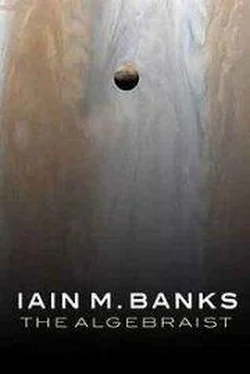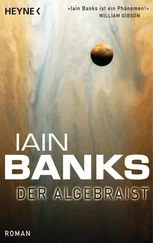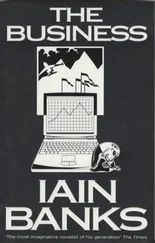For here, at the very centre of this watery globe, there seemed to be no gravity. There was colossal pressure, certainly, pressing in from every side, but one was in effect weightless (on the outside of a planet, moon or other body, watery or not, one is always being pulled towards its centre; once at its centre one is being pulled equally in all directions), and indeed the pressure around one was, for the same reason, not quite as great as one might have expected it to be, given the mass of water that the moon was made up from. This was, of course,
I was born in a water moon. Some people, especially its inhabitants, called it a planet, but as it was only a little—
The captain broke off there, exponentially scrolling some of the rest across the screen, then stopping to read a line: “Where a strange thing happened.” He flicked further on, stopping again: “I was born in a water moon. Some people, especially its”
All like this? he asked his Number Three.
All the same, it is believed, sir. It appears to repeat precisely the same few hundred words, time after time. About twelve to the seventeen times. That is all that is left of its memory. Even the base operating system and instruction sets have been overwritten. This is a standard abominatory technique known as destructive recall.
It leaves no trace of what might have been there before?
Trace is left, but that too reveals a short repetitive. Tech begs suggest this is merely the last of many iterative over-writes. No trace remains of the machine’s true memories before it realised capture or destruction was inevitable.
Indeed.
The Voehn captain tapped a control to take the display through to the end. The screen froze for an appreciable moment, then displayed: “I was born—”
This is the very last section of memory?
Yes, sir.
An expression another Voehn would have recognised as a smile crossed the captain’s face, and his back-spines flexed briefly.
This has been checked, Number Three? There is no other content, are no hidden messages?
It is being checked, sir. The totality of the data exceeds our ship’s memory capacity and is being processed in blocks. What you see here is technically an abstraction.
Time to accomplish?
Another twenty minutes.
Any other media capable of supporting significant stored information load?
None. The construct was mostly what it appeared: a comet head. The main artificial part of it was the abomination at the core, the sensory and propulsion units being separate, surface-mounted and motley. Tech informs fully checked.
Original language used in the repeated piece?
As seen: Old Standard.
Origin of quoted piece?
Unknown. A tentative analysis from Tech\Soc. rated nineteen per cent suggests it may be of Quaup origin.
The Quaup, the majority of whom were part of the Mercatoria — the captain had served on a war craft with a Quaup officer — were of the meta-species type people usually called blimps, small to medium-sized balloon-like creatures, air-going oxygen processors. The repeated passage filling the captured machine’s memory was fairly obviously told from the point of view of a submersible waterworlder. Well, the captain thought, people wrote from the points of view of others. At primary college he himself had composed poems as though he was a Culmina, before he had realised this was a crime of presumption, confessed and rightly been punished for it. Quite put him off composition.
The only major blot on the captain’s otherwise exemplary military-education record had been a phase of remediation required to bring his Deployable Empathic Quotient up to scratch, this flaw later being diagnosed as a consequence of his shunning all such feelings after his inadvertent insult and subsequent disciplining. Still, he had made captain, which one did not do without some empathic subtlety, anticipating the feelings of both one’s crew and one’s opponents.
He looked out at the half-melted remains of the captured construct, a pitted, black-body, comet-disguised vessel which had been roughly eight hundred metres in diameter and was now missing a great quarter-bite of structure. It lay a couple of kilometres off, radiating the last of the heat from its partial destruction, surrounded by a small system of wreckage, dark shards and splinters orbiting its ravaged body.
The view, lit by one of their own ship’s attenuated CR beams, was about as clear and perfect as it could possibly be; there was no screen in the way, and not even any transparent hull material, atmosphere or other medium. The captain was looking straight out from the flying bridge of his ship, an open-work nest of massive but elegantly sculpted girder work on the outside of the vessel. The vessel was unshared with any other species, crewed by Voehn only, happily, so the rest of the ship was open to vacuum too. For the duration of the action they had been deep in the guts of the ship, of course, safe in the core control space, sheltered by layers of shields and hull, senses protected by screens, but — once the wreck had been judged safe — the captain, his Number Three and a couple of favoured ratings had made their way to the exterior, the better to appreciate the view of their vanquished foe.
The captain looked around, as if hoping to see some real comet nuclei floating past. Taking a bearing, zooming in, he could just make out the lights denoting the drives of his other two ships, ordered to return to the inner system once the engagement was over, two dim blue stars, untwinkling. Save those, all that was visible nearby was the ship beneath them and the wreck two klicks away.
A cold and lonely spot to die, the captain thought. A logical, sensible choice of hiding place for the abomination machine, but still not a site any living — or apparently living — thing raised anywhere else would normally choose as a place to spend its last moments.
He handed the screen back to his Number Three and turned his principal eyes to look out at the hulk again, his rear recessional signal pit and secondary eye complex still facing the junior officer, flickering the words,
Well, one mission-part accomplished. Lay in a return to system base and, once the full contents of the abomination’s memory have been processed, deploy AM charges sufficient to leave residue no greater than elementary particle in size.
Sir.
Dismissed.
The ship accelerated smoothly but moderately hard, creating a distant humming roar. Fassin had a little pad under his right forearm which sensed muscle movements there and adjusted the screen across from him — above from him, now, it felt, as the couch straightened out and the gee-suit supported him — and so he got a glimpse of Pirrintipiti as the ship turned away from Nasqueron and headed deeper in-system, to the next planet sunward, the more-or-less Earthlike Sepekte.
On the screen, ’glantine’s tropical capital was a towered and shimmering smear draped across a scatter of dark green islands set in a pale green sea. Odd, already to be missing Pirri, he thought. He wouldn’t have had a chance to set foot out of the port there, but he’d been expecting the usual routine of transferring from a suborb to a tube train and then, somewhere in the bowels of the vast stalk, the Equatower, waiting for the lift up the cable to the satport and a space-capable ship there. To be heading straight out from the Autumn House into space just seemed wrong somehow, a curious disconnect of the soul.
Trips to Sepekte usually took anywhere from under five days to over a week at the standard one-gee acceleration, depending on planetary alignment. The ships were large and comfortable and you could move around normally, visiting restaurants and bars, screens and gyms and, on the bigger liners, even swimming pools. The weightless minutes in the middle were an interlude for fun (and, often, some rushed and oddly unsatisfactory sex). People from ’glantine sometimes found the double weight of standard gee a little uncomfortable, but it was pretty much what they’d experience when they got to Sepekte anyway, so it was kind of like getting in training.
Читать дальше












